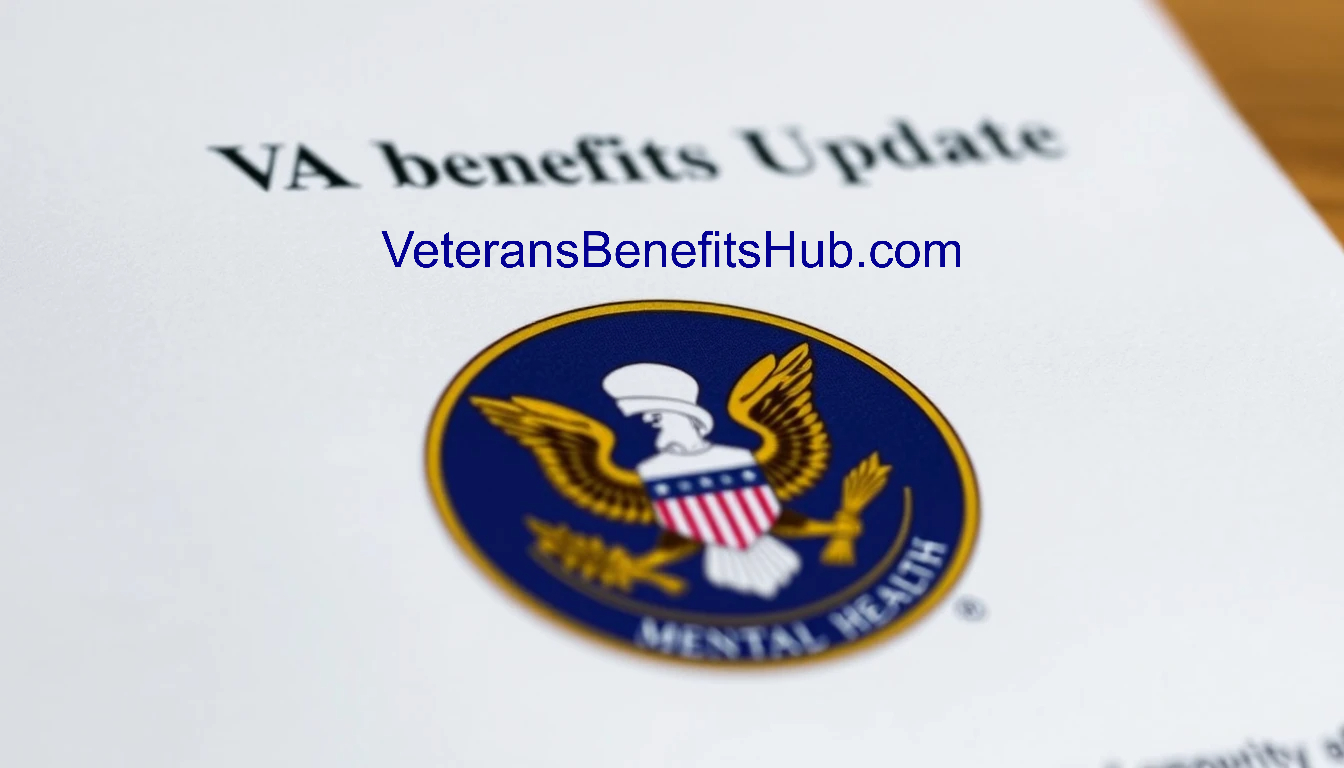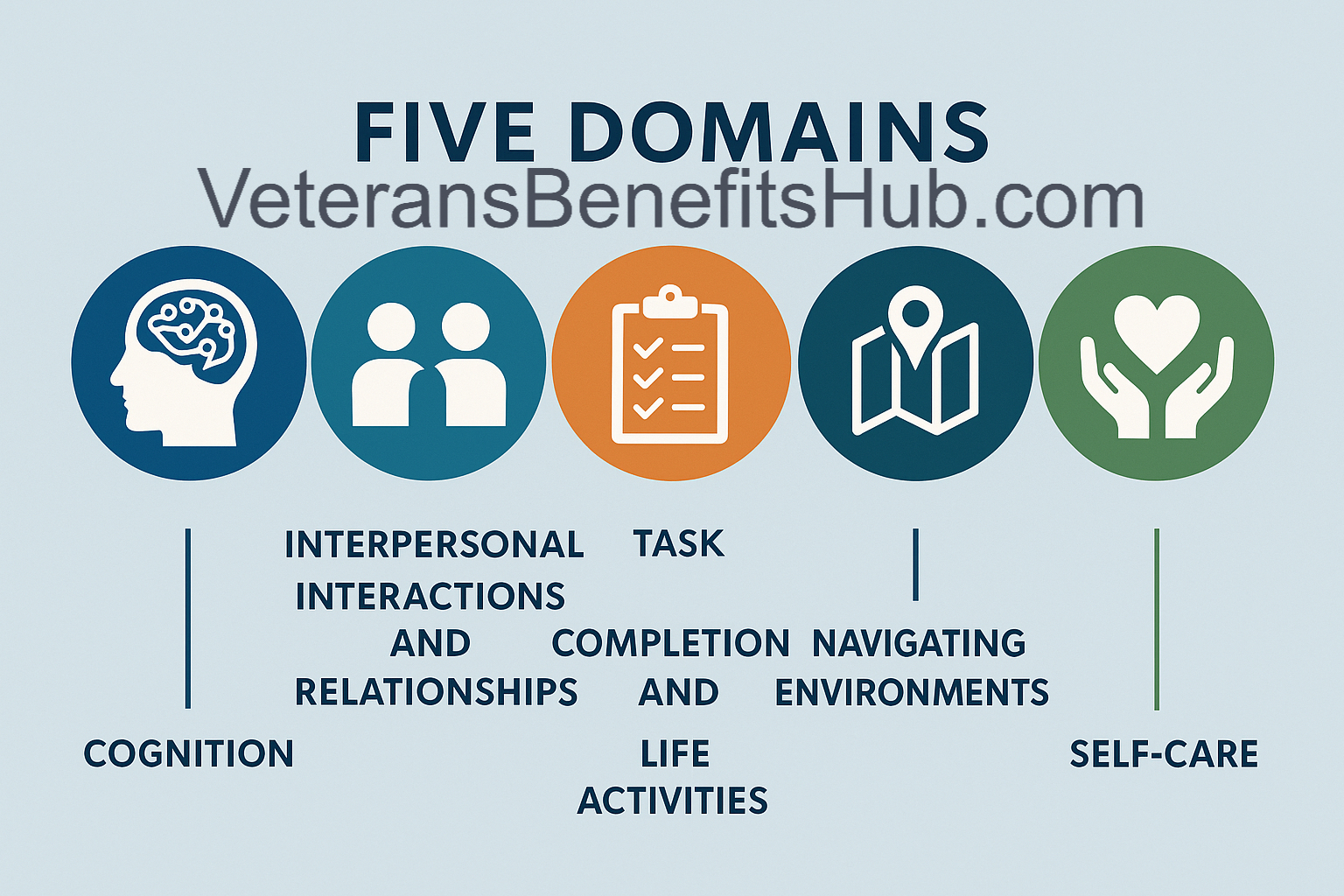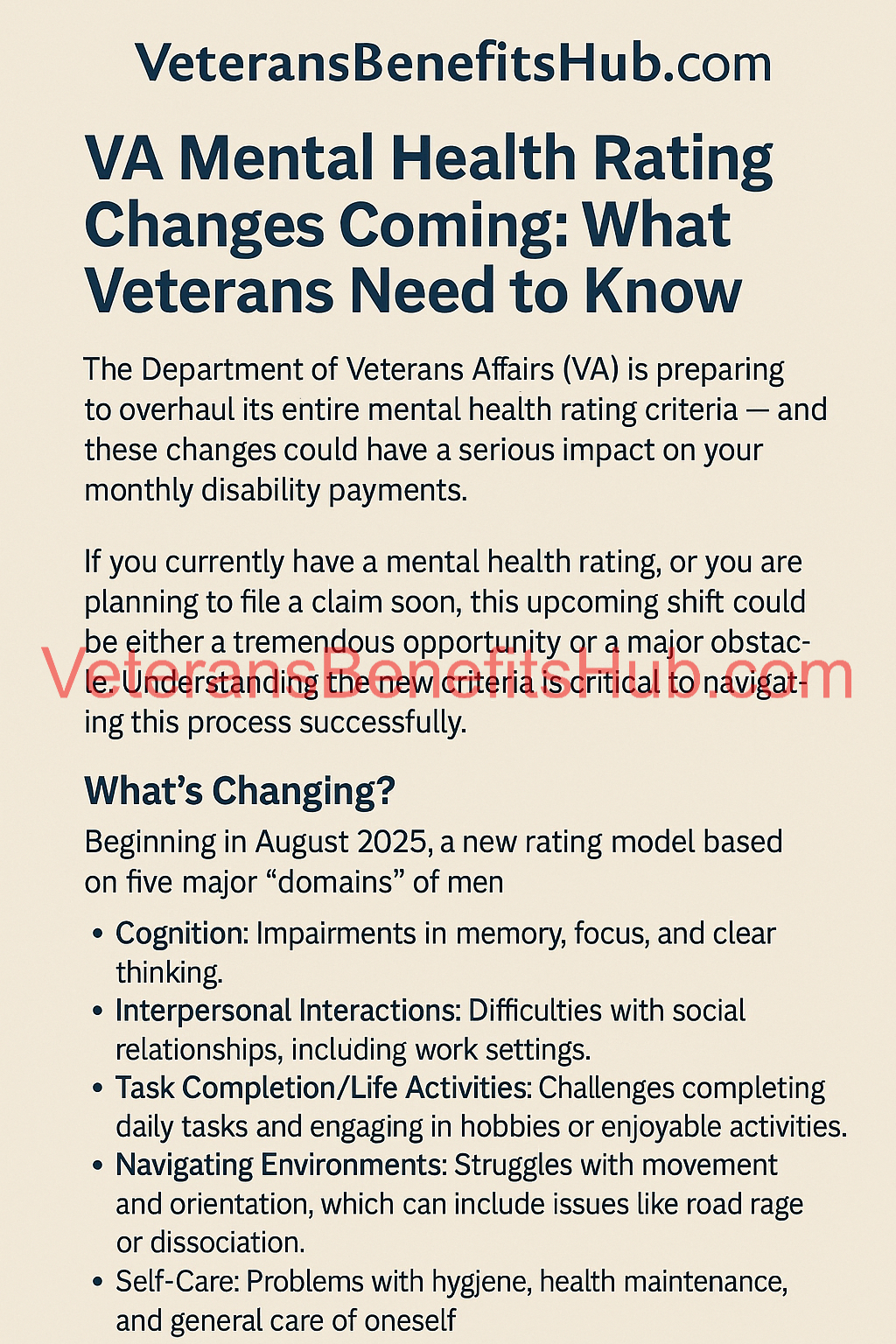Veterans and their families can access a wide range of benefits beyond federal programs offered through the Department of Veterans Affairs (VA). Each state and U.S. territory provides unique benefits, including tax exemptions, educational perks, and discounts on licenses, tailored to veterans, their families, and survivors. This article highlights key state-specific veterans benefits, focusing on tax exemptions, and provides resources to help you navigate these opportunities.
State Veterans Affairs Departments
Every state has its own Veterans Affairs department or equivalent agency responsible for administering state-specific veterans benefits. These benefits vary widely—some states offer full property tax exemptions for primary residences, while others provide registration fee waivers for vehicles, hunting or fishing license discounts, or educational benefits for state schools. Many of these perks go unused simply because veterans are unaware of them.
To explore benefits in your state, visit the VA’s comprehensive guide, State Veterans Benefits, which links to each state’s Veterans Affairs website for detailed information.
VA’s Guide to State Tax Benefits
On April 22, 2025, the VA released a news article titled Unlocking Veteran Tax Exemptions Across States and US Territories: Your Road Map to Veteran Tax Benefits by State and Territory. This guide organizes tax benefits alphabetically by state and territory, making it easy to find relevant information. Each state’s section includes a hyperlink to its official Veterans Affairs or tax authority website for the most current details.
According to the VA, “Most states and territories provide tax benefits for veterans, their families, and survivors. Whether you’re a veteran checking options in your area, a family member or survivor seeking clarity, or a transitioning service member planning your next move, this guide simplifies the process.”
Spotlight on High-Population Veteran States
Below, we highlight tax benefits in some of the states with the largest veteran populations—California, Florida, Georgia, and Texas—based on the VA’s guide.
California
- Income: Active-duty residents stationed outside California pay no state income tax. Military pay is taxable if stationed in the state.
- Business: Honorably discharged veterans selling goods from a fixed location may be exempt from municipal, county, and state business license fees (excluding alcohol sales).
- Property: Honorably discharged veterans, their surviving spouse, or pensioned parent can claim a $4,000 property tax exemption (or $10,000 for married couples) unless the property value exceeds $5,000. Veterans with 100% disability or their unmarried surviving spouse qualify for a larger exemption (approximately $180,000 off the assessed value of the primary home). Contact your local assessor for details.
Florida
- Income: Florida has no state income tax.
- Property: Veterans with a 10% or higher VA disability can deduct $5,000 from their home’s assessed value. Those with 100% permanent disability, quadriplegia, or specific mobility impairments may be exempt from all property taxes, as may unremarried surviving spouses meeting certain criteria.
Georgia
- Income: Military retirement income is exempt up to $17,500 for those under 62, with an additional $17,500 for earned income; $35,000 for ages 62–64; and $65,000 for those 65 and older. Combat zone deaths erase income taxes for that year and prior combat zone years.
- Motor Vehicle: Permanently disabled veterans or those with vision or limb loss pay no property tax on vehicles. A VA grant for vehicle purchase or adaptation waives state sales tax.
- Business: Veterans with a 10% or higher service-connected disability and honorable discharge receive a 10-year exemption from local occupation taxes and fees.
- Property: Disabled veterans can exempt up to $109,986 of their primary residence’s value (per VA-set index), extending to unremarried surviving spouses or minor children.
Texas
- Income: Texas has no state income tax.
- Business: Qualified new veteran-owned businesses are exempt from franchise tax for five years.
- Property: Disabled veterans and surviving spouses may claim partial or total exemptions on appraised property values.
Why These Benefits Matter
State-specific veterans benefits can save you money or provide valuable services, but they’re often underutilized. Taking the time to research your state’s offerings can put money back in your pocket or reduce your financial burden. Always go directly to official sources, such as your state’s Veterans Affairs department or the VA’s state benefits guide, to ensure you have the most accurate and up-to-date information.
VA Comprehisive list by state below:
Most U.S. states and territories provide tax benefits for Veterans, their families and survivors. Whether you’re a Veteran checking options in your area, a family member or survivor seeking clarity, or a transitioning service member planning your next move, this guide simplifies the process. We’ve organized these benefits alphabetically by state and territory for quick reference. The information listed is current at time of publishing.
- Income: Military retirement pay, active combat pay, and Survivor Benefit Plan payments face no state, county or municipal income tax.
- Motor vehicle: Disabled Veterans with a VA-provided vehicle pay no license fees or property taxes. Veterans with a 10% or higher disability rating avoid license tax and registration fees.
- Other/Business: Small businesses (50 or fewer employees) earn a $1,000 income tax credit per newly hired, unemployed Alabama Veteran—doubled to $2,000 for recently discharged Veterans starting their own businesses.
- Property: Permanently and totally disabled Veterans, or those 65 and older, enjoy a property tax exemption on their home and up to 160 adjacent acres, with no income cap. Homes acquired through a VA specially adapted housing grant are tax-exempt for the Veteran or surviving spouse.
Learn more about Alabama Veterans benefits online.
- Income: No state income tax. Legal residents qualify for the Permanent Fund Dividend.
- Other/Business: Employers hiring Veterans may claim a tax credit under certain conditions.
- Property: Disabled Veterans with a 50% or higher service-connected disability rating get a tax exemption on the first $150,000 of their primary residence’s assessed value. This transfers to a spouse aged 60 or older if the Veteran passes away.
Learn more about Alaska Veterans benefits online.
Income: Residents pay taxes to the American Samoa Tax Office, not the IRS, effectively mirroring a no-income-tax state rate. Military pay and retired pay are taxable, but disability retirement pay for service-related injuries is not. Survivor Benefit Plan, Reserve Component Survivor Benefit Plan, and Retired Serviceman’s Family Protection Plan annuities are taxable.
Learn more about Veteran benefits in American Samoa.
- Income: Military retirement benefits, annuities and pensions are fully exempt from income tax. Nonresident military spouses may avoid Arizona income tax under specific conditions.
- Motor Vehicle: Veterans enjoy vehicle license tax exemptions, special plates and CDL-skills test waivers through the Arizona Department of Transportation.
- Property: Property tax exemptions vary by county.
Learn more about Veteran benefits in Arizona.
- Income: Active duty pay, retired pay and Survivor Benefit Plan payments are tax-free.
- Property: Veterans with specific VA-awarded disabilities (e.g., loss of limbs, total blindness, or 100% service-connected disability) qualify for a full homestead and personal property tax exemption. Un-remarried surviving spouses and dependent children may also benefit if the Veteran died in service or from service-connected causes.
Learn more about Veteran benefits in Arkansas.
- Income: Active duty residents stationed outside California pay no state income tax. Military pay is taxable if stationed in-state.
- Other/Business: Honorably discharged Veterans selling goods from a fixed location may avoid municipal, county, and state business license fees (excludes alcohol sales).
- Property: Honorably discharged Veterans or their surviving spouse or pensioned parent claim a $4,000 property tax exemption unless the property value exceeds $5,000 ($10,000 for married couples). Veterans with 100% disability or their unmarried surviving spouse qualify for a larger exemption with basic and low-income tiers—check with the local assessor.
Learn more about Veteran benefits in California.
- Income: Active duty pay is tax-free if stationed outside the continental U.S. for at least 305 days. Military retirees deduct up to $15,000 (under 55), $20,000 (55-64), or $24,000 (65+) from retirement income, including Survivor Benefit Plan payments.
- Property: Qualifying disabled Veterans, surviving spouses and Gold Star spouses are exempt from 50% of the first $200,000 of their primary residence’s value, with the state covering lost county revenue.
Learn more about Veteran benefits in Colorado.
- Income: Residents pay taxes to the CNMI Tax Office, not the IRS, aligning with a no-income-tax state rate. Military pay and retired pay are taxable, but disability retirement pay for service-related injuries is not. Survivor Benefit Plan, Reserve Component Survivor Benefit Plan, and Retired Serviceman’s Family Protection Plan annuities are taxable
Learn more about Veteran benefits in the Northern Mariana Islands.
- Income: Active duty pay is tax-free if stationed out-of-state, provided you don’t own a Connecticut home or stay more than 30 days yearly. Military retirement pay and Survivor Benefit Plan payments are tax-free.
- Motor Vehicle: Veterans with 90-plus days of wartime service claim a motor vehicle tax exemption. Non-residents garaged in Connecticut due to military orders may qualify under federal law. Leased vehicle tax refunds are available.
- Property: Honorably discharged Veterans with 90-plus days of wartime service get a $1,000 property tax exemption, with additional relief for disabled Veterans meeting income limits.
Learn more about Veteran benefits in Connecticut.
- Income: Retired service members deduct up to $12,500 of military retirement pay from income tax until age 60, then switch to the standard pension exclusion.
- Other/Business: Employers hiring Veterans deployed to hostile environments (e.g., Iraq, Afghanistan) earn a 10% wage tax credit, up to $1,500, for three years.
- Property: Qualified Veterans claim a full non-vocational school district property tax credit on their primary residence.
Learn more about Veteran benefits in Delaware.
- Income: Military retired pay is fully taxable. Disability retirement pay for service-related injuries is not. Military pay is taxable for residents. Survivor Benefit Plan, Reserve Component Survivor Benefit Plan, and Retired Serviceman’s Family Protection Plan annuities are tax-free for survivors 62+. Social Security benefits are exempt.
- Property: Veterans with a 100% service-connected disability or paid at that rate due to unemployability qualify for a $445,000 reduction in assessed home value, subject to ownership, residency and income limits ($159,750 for 2025).
Learn more about Veteran benefits in the District of Columbia.
- Income: No state income tax.
- Property: Veterans with a 10% or more VA disability deduct $5,000 from their home’s assessed value. Those with 100% permanent disability, quadriplegia or specific mobility impairments may exempt all property taxes, as may un-remarried surviving spouses meeting criteria.
Learn more about Veteran benefits in Florida.
- Income: Military retirement income is exempt up to $17,500 for disabled Veterans under 62, with an extra $17,500 for earned income; $35,000 for ages 62-64; and $65,000 for 65+. Combat zone deaths erase income taxes for that year and prior combat-zone years.
- Motor Vehicle: Permanently disabled Veterans or those with vision/limb loss pay no property tax on vehicles. A VA grant for vehicle purchase/adaptation waives state sales tax.
- Other/Business: Veterans with a 10% or more service-connected disability and honorable discharge get a 10-year exemption from local occupation taxes and fees.
- Property: Disabled Veterans exempt up to $109,986 of their primary residence’s value, per a VA-set index, extending to un-remarried surviving spouses or minor children.
Learn more about Veteran benefits in Georgia.
- Property: Eligible disabled Veterans, surviving spouses, Gold Star parents or legal guardians may exempt all property taxes on their residence.
Learn more about Veteran benefits in Guam.
- Income: Retired pay, Survivor Benefit Plan payments and National Guard/Reserve drill pay (up to an E-5’s 48 drills and 15 training days) are tax-free.
- Motor Vehicle: Totally disabled Veterans with VA-subsidized cars avoid taxes. Active duty non-residents stationed in Hawaii skip motor vehicle weight taxes on one vehicle.
- Property: Totally disabled Veterans or their surviving spouses may qualify for an exemption from all property taxes on their home.
Learn more about Veteran benefits in Hawaii.
- Income: Active duty pay is tax-free if stationed outside Idaho. Veterans or un-remarried widows 65+ (or 62+ and disabled) deduct retirement benefits, reduced by Social Security or Railroad Retirement amounts.
- Other/Groceries: Veterans 65+ (or 62+ and disabled) with only VA disability income claim a grocery tax credit.
- Property: Veterans with a 10% or more service-connected disability or VA pension qualify for a property tax reduction if they meet income and residency rules. Those with 100% disability may reduce taxes by up to $1,320.
Learn more about Veteran benefits in Idaho.
- Income: Active duty, Guard, Reserve, retired pay and Survivor Benefit Plan payments are tax-free.
- Property: Homes bought or modified with a VA Specially Adapted Housing Grant reduce taxable value by up to $100,000; mobile homes are exempt from county tax. Returning Veterans get a one-time $5,000 homestead reduction. Disabled Veterans deduct $2,500 (30-50% disability), $5,000 (50-70%), or all taxes (70% or more), with un-remarried surviving spouses of those killed in action also exempt—file annually with the county.
Learn more about Veteran benefits in Illinois.
- Income: Active duty and Reserve pay is tax-free starting in 2024. Retired pay and Survivor Benefit Plan payments are tax-free with a $5,000 deduction available.
- Property: Wartime Veterans with 10% or more VA disability deduct $24,960; those 62+ or totally disabled with a home under $200,000 deduct $14,000—or both ($38,960 total) if meeting all criteria.
Learn more about Veteran benefits in Indiana.
- Income: Federal military retirement pay and survivor benefits are tax-free.
- Property: Veterans with 18+ months of active duty deduct up to $4,000 from their home’s assessed value.
Learn more about Veteran benefits in Iowa.
- Income: Military retirement pay is tax-free. Starting in 2023, 100% service-connected disabled Veterans claim a $2,250 personal exemption.
- Other/Sales Tax: From July 1, 2026, 100% service-connected disabled Veterans avoid sales tax on up to $24,000 in annual purchases (excludes tobacco, alcohol, vehicles).
- Property: Veterans with 50% or more permanent service-connected disability claim a homestead refund—must be honorably discharged Kansas residents.
Learn more about Veteran benefits in Kansas.
- Income: All military pay, pre-1998 retiree pay, and disability retirement pay for service injuries are tax-free. Post-1997 retirees exclude up to $31,110 of retired pay.
- Property: Homeowners 65+ or totally disabled qualify for a homestead exemption.
Learn more about Veteran benefits in Kentucky.
- Income: Federally exempt military pay (e.g., combat pay) and retirement benefits are tax-free. Service members stationed outside Louisiana for 120+ consecutive days deduct up to $50,000 of military compensation.
- Property: Veterans with 50% or more service-connected disability add exemptions to the homestead: $2,500 (50-69%), $4,500 (70-99%), or full exemption (100%, except some municipal taxes).
Learn more about Veteran benefits in Louisiana.
- Income: Out-of-state military pay, retirement pay and Survivor Benefit Plan payments are tax-free.
- Motor Vehicle: Totally disabled Veterans receiving federal pensions or compensation get free registration. Excise tax exemptions apply if eligible, even without disabled plates—contact the Maine Bureau of Veterans’ Services.
- Property: Wartime Veterans 62+ or 100% disabled (or disabled while serving) are exempt from paying $6,000 from their home’s value. Paraplegic Veterans with a federal housing grant exemption of $50,000.
Learn more about Veteran benefits in Maine.
- Income: Military retirees subtract up to $12,500 of retirement income (or $20,000 if 55+). Those 65+, totally disabled, or with a totally disabled spouse exclude up to $34,300 of pension income.
- Motor Vehicle: Active duty members or their family claim an excise tax credit with proof of status, within limits.
- Other/Vessel: For one year, active duty members in Maryland avoid the 5% vessel excise tax on out-of-state-registered boats.
- Property: Veterans with 100% permanent service-connected disability or surviving spouses of those killed in action may exempt real property taxes on their home and yard—local exemptions vary.
Learn more about Veteran benefits in Maryland.
- Income: U.S. military pensions are tax-free. Nonresident service members pay no tax on military compensation; residents do. Combat zone pay is excluded. Guard/Reserve members traveling 100+ miles deduct unreimbursed overnight expenses.
- Motor Vehicle: Disabled Veterans with a 100% VA disability rating or unemployability status (per the HERO Act) skip excise and sales tax on one non-commercial vehicle with DV plates. Purple Heart recipients with 60% or more disability also avoid sales tax with qualifying plates.
- Property: Disabled Veterans (10% or more) claim $400-$1,500 exemptions if Massachusetts residents occupy the property as their domicile. Surviving spouses of service-related deaths may get a full exemption.
Learn more about Veteran benefits in Massachusetts.
- Income: Active duty pay, retired pay, Survivor Benefit Plan, and Dependency and Indemnity Compensation payments are tax-free.
- Property: The Homestead Property Tax Credit boosts relief for some Veterans—file by April. Disabled Veterans with 100% VA disability, specially adapted housing aid, or unemployability rating (or their un-remarried surviving spouse) exempt their homestead starting 2025 without reapplication.
Learn more about Veteran benefits in Michigan.
- Income: Military pay, retirement pay, and Survivor Benefit Plan payments are tax-free. Credits apply for combat zone service (post-2014) or past military service (up to $750).
- Property: Veterans with disabilities, surviving spouses or primary caregivers exclude $150,000 or $300,000 of their home’s market value, based on status.
Learn more about Veteran benefits in Minnesota.
- Income: Military retired pay and Survivor Benefit Plan payments are tax-free.
- Privilege Tax: Veterans 65+, blind, deaf, mute or 50% or more disabled with income under $900 avoid privilege taxes on certain businesses.
- Property: Honorably discharged Veterans with total service-connected disability (or their un-remarried surviving spouse) are exempt from all homestead property taxes.
Learn more about Veteran benefits in Mississippi.
- Income: Active duty and National Guard/Reserve income (as of 2024) is tax-free. Military retirement pensions are fully deductible.
- Motor Vehicle: Equipment to modify vehicles for disability use is sales tax-exempt.
- Other/Business: For-profit employers claim Work Opportunity Tax Credits: up to $4,800 for disabled Veterans, $9,600 for long-unemployed disabled Veterans, or $5,600 for other unemployed Veterans, based on hours worked.
- Property: Former POWs with total service-connected disability exempt all homestead taxes. Out-of-state military waive property tax receipt verification with a non-Missouri Leave and Earnings Statement. Disabled Veterans or seniors claim a credit up to $1,100 (owners) or $750 (renters), excluding VA benefits from income calculations.
Learn more about Veteran benefits in Missouri.
- Income: Active duty and Reserve/Guard pay is tax-free. Starting 2024, military retirees deduct 50% of retirement or survivor pay for five years. Retirees generally exclude up to $5,060 if their income is below $42,140; those 65+ subtract $5,500.
- Property: Veterans with 100% service-connected disability (or their un-remarried surviving spouse) reduce their home’s tax rate by 50%-100%, based on income and marital status.
Learn more about Veteran benefits in Montana.
- Income: Starting in 2022, military retirement benefits are fully excluded from taxable income. Active duty pay is taxed only by the service member’s legal residence state, per federal law.
- Property: Totally disabled Veterans from service-connected causes, those with VA-funded homes, or their surviving spouses qualify for a homestead exemption.
Learn more about Veteran benefits in Nebraska.
- Income: No state income tax.
- Motor Vehicle: Wartime Veterans with 90+ days of active duty or those with 60% or more permanent disability claim exemptions, transferable to property taxes or vehicle registration fees. Surviving spouses may qualify
- Other/Sales Tax: National Guard members and families enjoy a three-day sales tax break during Nevada Day.
- Property: Veterans are exempt from the first $2,000 assessed value (adjusted annually). Disabled Veterans are exempt from $10,000 (60-79%), $15,000 (80-99%), or $20,000 (100%) of assessed value, also adjusted yearly.
Learn more about Veteran benefits in Nevada.
- Income: No income tax; only interest and dividends are taxed.
- Property: Veterans’ organizations’ property is tax-exempt. Wartime Veterans, spouses or widows claim a $51 credit (up to $750 locally). All Veterans with 90+ days of service may get an additional local credit. Widows of those killed in action claim $700-$4,000. Totally disabled Veterans (blind, paraplegic or double amputees) with VA-adapted homes are exempt from all taxes, as are surviving spouses.
Learn more about Veteran benefits in New Hampshire.
- Income: Military pay is taxable for residents; mustering-out payments, allowances, pensions, survivor benefits and combat pay are not. Federal civil service pensions are taxable.
- Property: Honorably discharged Veterans with active duty service (or their surviving spouse/partner) deduct $250 annually—Reservists and Guard must be called to active duty.
Learn more about Veteran benefits in New Jersey.
- Income: Active duty pay is tax-free; up to $30,000 of military retirement pay is exempt.
- Motor Vehicle: Veterans with specific service-connected limb loss exempt the excise tax. Those with partial property tax exemptions pay two-thirds of vehicle registration fees.
- Other/Business: Employers hiring recently returned Veterans claim a $1,000 tax credit per hire.
- Property: Veterans with 100% permanent service-connected disability (or their spouse) are exempt from their primary residence. All Veterans or surviving spouses deduct $4,000 of taxable property value—certain discharge characterizations may not qualify.
Learn more about Veteran benefits in New Mexico.
- Income: Retired pay and Survivor Benefit Plan payments are tax-free. Active duty income is tax-free for New York residents if stationed elsewhere, maintaining an out-of-state home, and spending under 30 days in New York yearly.
- Property: Veterans claim one of three exemptions—Alternative (wartime/expeditionary), Cold War, or Eligible Funds (pension/bonus/insurance-funded property)—plus disability bonuses. Surviving spouses may qualify—file before local tax deadlines.
Learn more about Veteran benefits in New York.
- Income: Military retirement and Survivor Benefit Plan payments are tax-free.
- Motor Vehicle: Disabled Veterans with VA-adapted vehicles skip the highway tax.
- Property: Veterans with 100% permanent, service-connected disability (or their surviving spouse receiving Dependency and Indemnity Compensation) are exempt from the first $45,000 of assessed home value. Qualified Veterans also claim a $2,000 annual mortgage tax credit, combinable with down payment aid.
Learn more about Veteran benefits in North Carolina.
- Income: Active duty, reservist, retired pay and Survivor Benefit Plan payments are tax-free for residents.
- Motor Vehicle: Veterans with 100% service-connected disability (or un-remarried surviving spouses with Dependency and Indemnity Compensation) are exempt from two vehicles.
- Property: Honorably discharged Veterans with 50% or more VA disability deduct property taxes based on disability percentage—surviving spouses qualify, too.
Learn more about Veteran benefits in North Dakota.
- Income: Active duty pay is tax-free if stationed out-of-state; retirement pay and Survivor Benefit Plan payments are tax-free.
- Property: Veterans with 100% service-connected disability (or surviving spouses in the same home) claim a homestead exemption, reducing taxes on up to $25,000 of market value—rates vary by location.
Learn more about Veteran benefits in Ohio.
- Income: All military pay and retirement pay is tax-free.
- Other/Sales Tax: Veterans with 100% permanent VA disability, registered in the Oklahoma Veterans Registry, avoid state sales tax.
- Property: Veterans with 100% disability owning their residence are exempt from all property taxes.
Learn more about Veteran benefits in Oklahoma.
- Income: Active duty pay is tax-free outside Oregon, with up to $6,000 exempt in-state. Pre-1991 service retirees deduct part of their retirement pay; post-1991 pay is taxed normally. Survivor Benefit Plan follows the same rule. Disability compensation is tax-free.
- Property: Disabled Veterans (40% or more), surviving spouses/partners, or deployed Guard/Reserve members are exempt from part of their home’s assessed value. Disabled Veterans may defer taxes via a state loan—repayable with 6% interest; file with the county assessor.
Learn more about Veteran benefits in Oregon.
- Income: Out-of-state active duty pay, military retirement pay and Survivor Benefit Plan payments are tax-free.
- Honorably discharged Veterans with 100% VA wartime disability exempt home property taxes if income is below $114,637 (2025 limit)—surviving spouses may qualify.
Learn more about Veteran benefits in Pennsylvania.
- Income: Veterans can claim a $1,500 exemption ($3,000 if both spouses are Veterans). Military pay is taxable in Puerto Rico; out-of-Puerto Rico pay faces federal tax. As of August 2024, military retired pay is exempt from territorial taxes (implementation pending). Retirees and survivors deduct $11,000 (under 60) or $15,000 (60+) from U.S. government pensions/annuities.
- Property: Veterans are exempt from $5,000 of their primary residence’s appraised value (up to 1,000 square meters urban or 1 cuerda rural) based on specific criteria.
Learn more about Veteran benefits in Puerto Rico.
- Income: Military retirement pay is tax-free.
- Property: Honorably discharged Veterans claim one of seven exemptions (e.g., regular, total disability, specially adapted housing)—amounts vary by category and location.
Learn more about Veteran benefits in Rhode Island.
- Income: Military retirement pay, federally exempt VA pensions/compensation, combat pay, Reserve/Guard inactive duty pay, and nonresident active duty pay are tax-free.
- Motor Vehicle: Totally disabled Veterans or their surviving spouses are exempt from property tax on one vehicle; trust-owned or spouse-titled vehicles may qualify with conditions.
- Property: Totally disabled Veterans (or surviving spouses) are exempt from paying property tax on their primary residence and up to 5 acres retroactive to 2022. Veterans with specific mobility/brain injuries are exempt from all residence taxes.
Learn more about Veteran benefits in South Carolina.
- Income: No state income tax.
- Other/Sales Tax: Seniors (65+ by January 1, 2025) or disabled individuals (per Social Security Act) with low income claim a yearly sales tax refund—checks start in September.
- Property: Permanently disabled or paraplegic Veterans (service- or non-service-connected) and surviving spouses are exempt all or up to $200,000 of their home, garage and one-acre lot.
Learn more about Veteran benefits in South Dakota.
- Income: No income tax, but interest and dividends are taxed; POWs are exempt during captivity and 60 days post-release.
- Motor Vehicle: Sales tax exemptions apply to military members’ vehicle purchases and adaptive equipment. Disabled Veterans with 100% disability or POWs avoid the privilege tax.
- Other/Business: Disabled Veterans may avoid business taxes on certain activities listed in the Tennessee business tax law.
- Other/Professional: Active military members with 181+ days of service skip the professional privilege tax (e.g., attorneys, lobbyists).
- Property: Certain 100% disabled Veterans and surviving spouses can claim property tax relief on part of their home’s value.
Learn more about Veteran benefits in Tennessee.
- Income: No state income tax.
- Other/Business: Qualified new Veteran-owned businesses skip franchise tax for five years.
- Property: Disabled Veterans and surviving spouses may claim partial or total exemptions on appraised property values.
Learn more about Veteran benefits in Texas.
- Income: Residents pay taxes to the USVI Bureau of Internal Revenue, not the IRS, at federal rates—effectively no state income tax. Military pay, retired pay and survivor annuities are taxable; disability retirement pay for service injuries is not.
- Property: Veterans can claim a $650 homestead tax credit or a full exemption if disabled; details may vary.
Learn more about Veteran benefits in USVI.
- Income: Military retirees exclude retirement pay from state taxes. Surviving spouses/children claim a 4.55% credit on survivor benefits.
- Other/Business: Employers hiring qualified Veterans may earn a tax credit, combinable with federal credits.
- Property: Veterans with 10% or more disability (or their surviving spouse/orphans) abate up to $505,548 of their home’s taxable value, scaled by disability. Active/Reserve members deployed out of state for 200+ days exempt their primary residence’s full value.
Learn more about Veteran benefits in Utah.
- Income: Military retirement pay is exempt up to $10,000, capped at $50,000 (single) or $65,000 (joint) gross income. It is subject to choosing between this or a Social Security exemption at eligibility age.
- Property: Veterans with at least a 50% service-connected disability or Improved Pension (and some surviving spouses) may reduce their primary home’s appraised value by $10,000-$40,000, depending on town rules.
Learn more about Veteran benefits in Vermont.
- Income: Military retirees can subtract up to $30,000 (2024) or $40,000 (2025+) of retirement or survivor benefits from taxable income.
- Motor Vehicle: Certain qualified disabled Veterans or spouses are exempt from local taxes on one owned vehicle, not leased.
- Property: Virginia provides tax exemptions for 1.) Certain Veterans and their surviving spouses, and 2.) The surviving spouses of soldiers killed in action.
Learn more about Veteran benefits in Virginia.
- Income: No state income tax.
- Motor Vehicle: Sales tax exemptions apply to VA-reimbursed automotive adaptive equipment.
- Other/Sales Tax: Disabled Veterans with VA adaptive housing grants claim a $2,500 refund on state sales/use tax for project costs.
- Property: Seniors, disabled retirees and Veterans with 80% or more service-connected disability (or their widows) may qualify for income-based exemptions or deferrals.
Learn more about Veteran benefits in Washington.
- Income: Retired pay and Survivor Benefit Plan payments are tax-free. Military pay is exempt if in-state for less than 30 days.
- Property: Starting 2024, Veterans with 90-100% VA disability claim a real property tax credit on their primary residence; taxes must be paid on time.
- Those with a 100% permanent disability rating may be exempt from certain taxes.
Learn more about Veteran benefits in West Virginia.
- Income: U.S. military retirement payments (including Survivor Benefit Plan and Retired Serviceman’s Family Protection Plan) and federally exempt military pay are tax-free.
- Property: Veterans and un-remarried surviving spouses can claim a refundable tax credit for their primary residence up to one acre.
Learn more about Veteran benefits in Wisconsin.
- Income: No state income tax.
- Motor Vehicle/Property: Combat Veterans or surviving spouses (Wyoming residents for 3+ years) may exempt $6,000 in assessed value, applicable to either their primary residence or vehicle registration tax; surviving spouse benefits end upon remarriage.
Learn more about Veteran benefits in Wyoming.
If you have federal tax questions and are looking for resources, please visit the IRS page on Veterans tax information and services, or check out this recent Vet Resources blog post on tax season guidance for Veterans.
Remember, Veterans have the flexibility to sign up for VA health care or apply for disability compensation or increased disability compensation from the comfort of home, at a time that suits them best.
To stay updated on the latest news for Veterans, families, caregivers and survivors, sign up for the VetResources weekly newsletter.
For a complete list of state-specific benefits, visit your state’s Veterans Affairs website through the VA’s State Veterans Benefits page or explore the tax exemptions guide at Unlocking Veteran Tax Exemptions.
Disclaimer: The information provided in this article is for general informational purposes only and is current as of April 22, 2025, per the VA’s publication. VeteransBenefitsHub.com does not guarantee the accuracy, completeness, or applicability of the information for your specific situation. Benefits and eligibility requirements vary by state and may change over time. Always consult your state’s Veterans Affairs department, local tax assessor, or a qualified professional for the most up-to-date and personalized guidance. Links to external websites are provided for convenience and do not constitute an endorsement by VeteransBenefitsHub.com.










